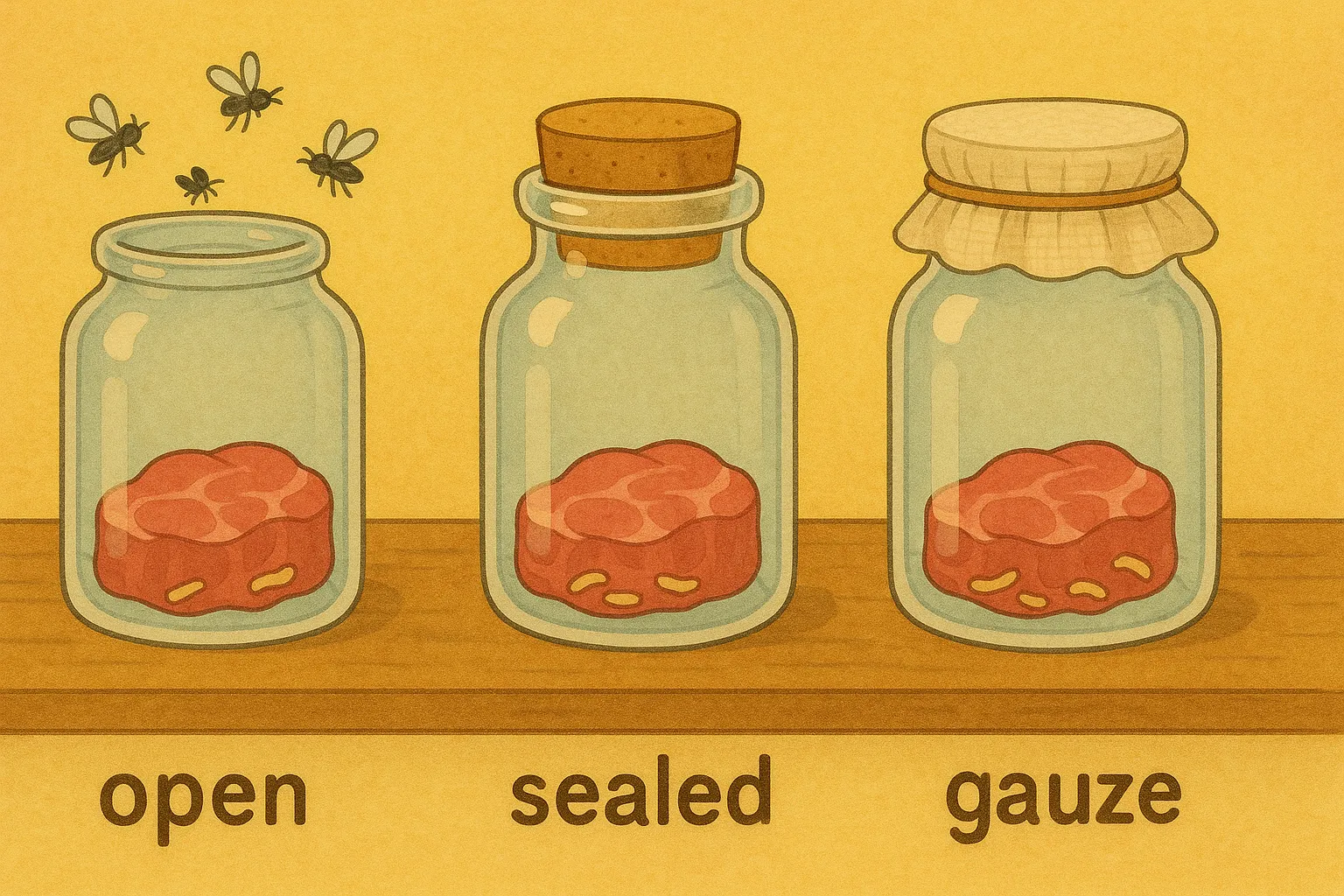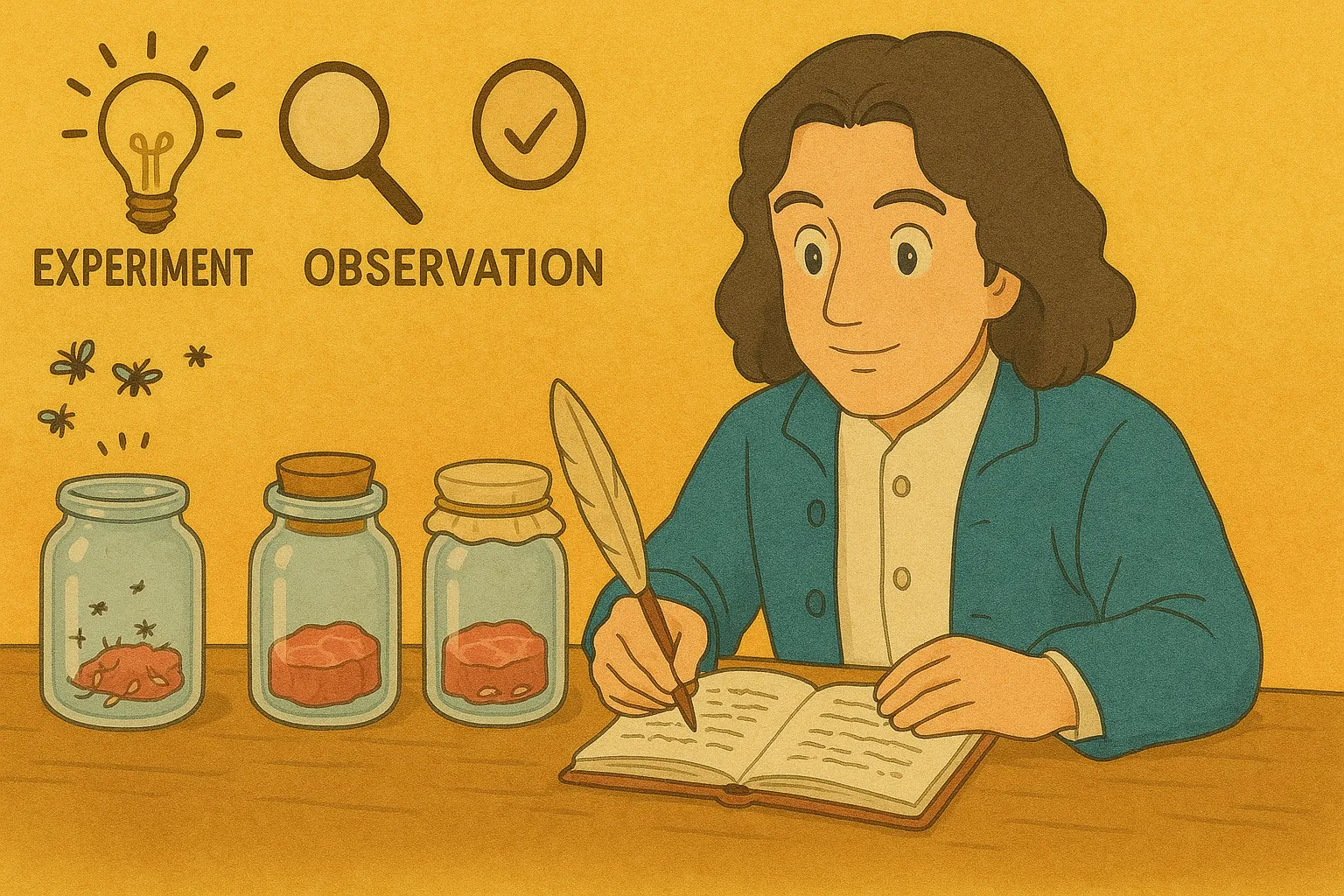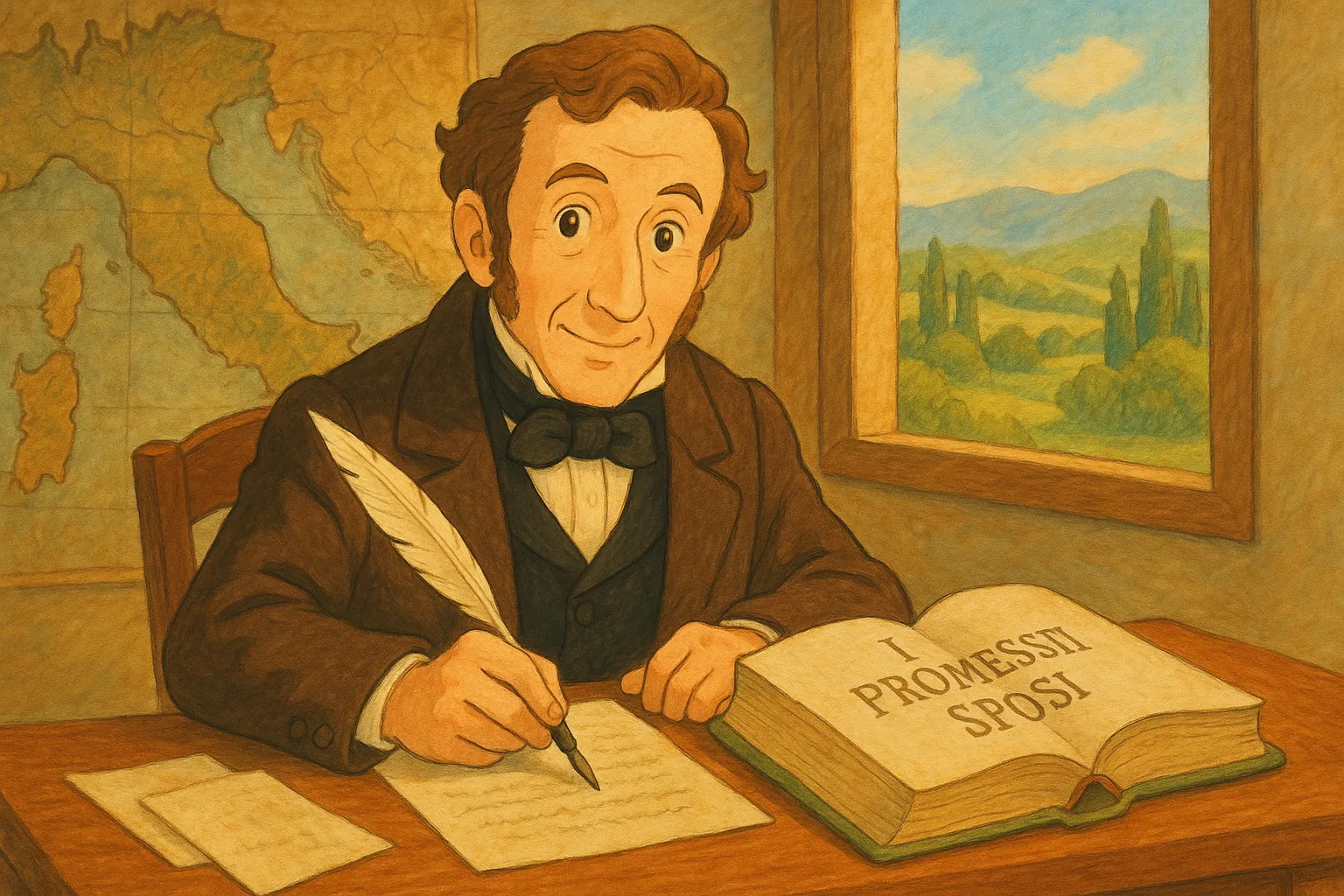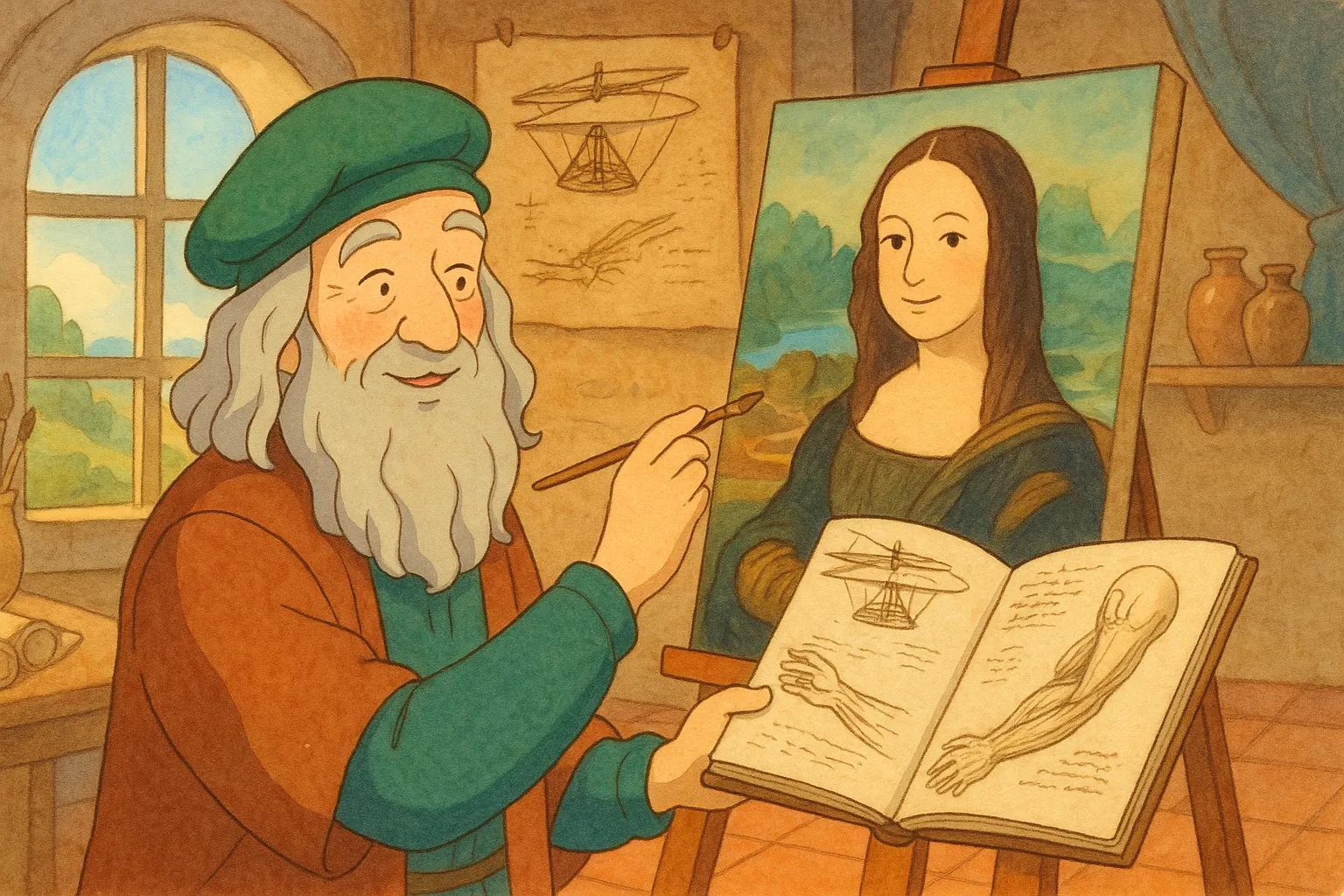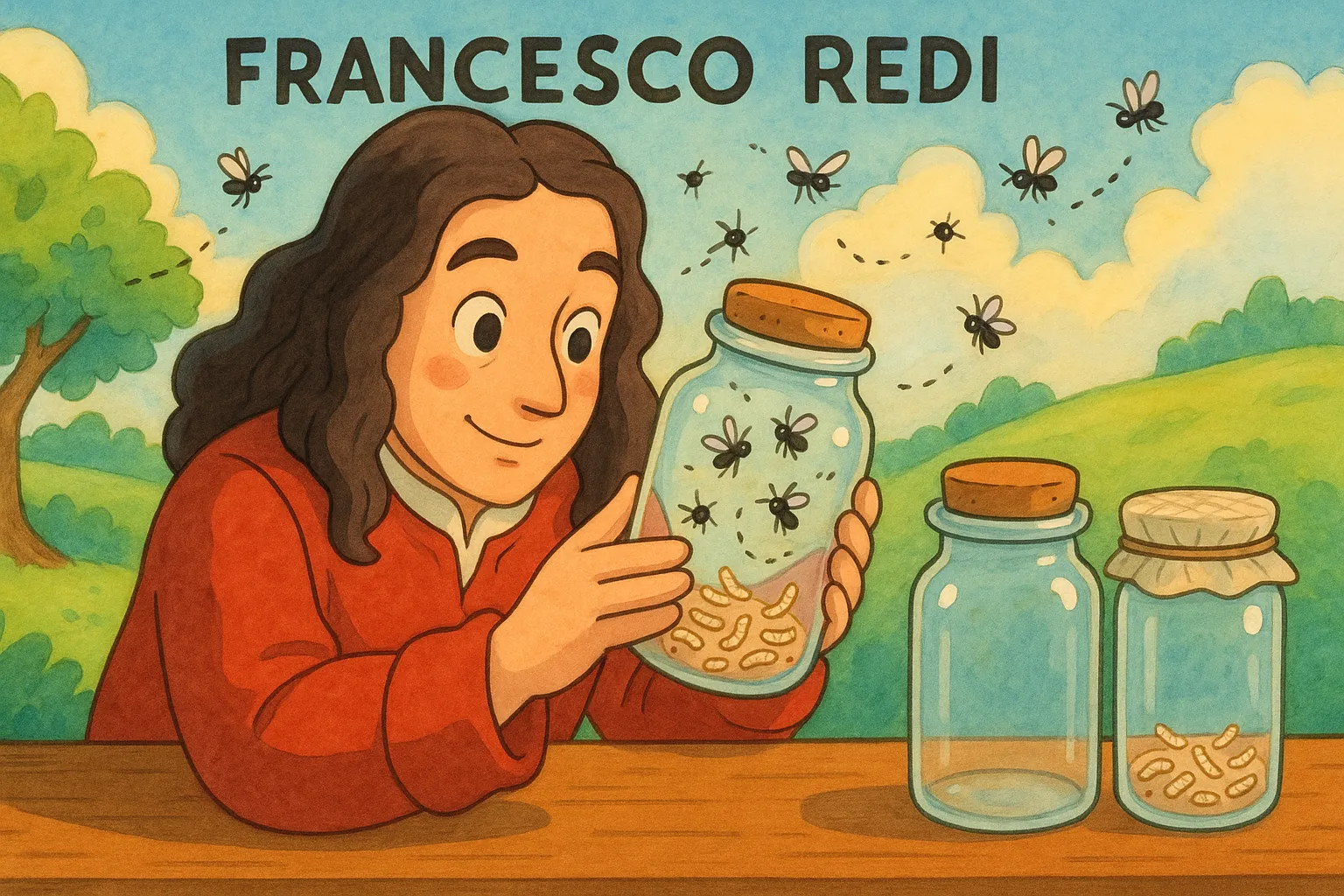
Francesco Redi

1626-1697
Disproved spontaneous generation with experiments
Published: September 26, 2025
Watch Video
Frequently Asked Questions
Where was Francesco Redi born?
He was born in Arezzo, Italy, in 1626.
What else did Redi study besides insects?
Redi researched snake venom and medical topics; he wrote about vipers and investigated how venom works as part of his natural-history studies.
Did Redi write books or poems?
Yes. He published scientific works and also wrote poems, composing in Italian and Latin and blending science with literature.
Were Redi's ideas accepted right away?
Not everyone accepted them immediately. His clear experiments convinced many scientists, but wider acceptance grew over time as more evidence accumulated.


